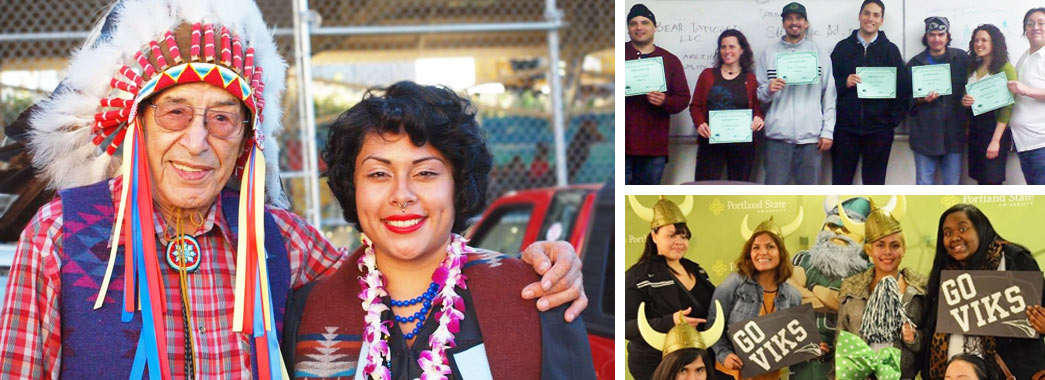Indigenous food sovereignty is much more than promoting a healthy, traditional diet. It is about reclaiming Indigenous peoples’ ability to access and manage traditional food sources. Food sovereignty promotes gaining a better understanding of—and a relationship to—the land and waters that produce our foods and medicines.
Traditional Indigenous diets were disrupted through colonization. By relegating Native populations to reservations, federal policy not only created the nation’s first “food deserts,” but also instituted a dependency on unhealthy food rations that altered Native diets permanently. Today, this dependence on unhealthy, non-traditional food systems continues to wreck havoc of the health of the Native population and the lands upon which we live.
Food sovereignty, then, is about cultural revitalization and bringing our traditional hunting, harvesting, fishing, preparing, and storing knowledge to new generations. It is about promoting self-empowerment, holistic wellness, and creativity in the ways in which we choose to feed our families. Food sovereignty is about reclaiming control over our health and spirit and decolonizing our diets. It is about asserting the human right to have secure access to healthy foods cultivated in sustainable ways and promoting sustainable economic development and stewardship of land and water resources.
NAYA’s Food Sovereignty programming includes
- Medicine and food gardens
- Group cooking classes & recipe sharing
- Sustainable harvesting
- Food preservation demonstrations
- Ecosystem restoration
- Networking and resource sharing
- Food and medicine distribution to elders and others
Please check our events calendar https://nayapdx.org/events/ to stay apprised of our current programming.
Want to learn more about Indigenous Food Sovereignty?
- Tribal Sovereignty – https://www.youtube.com/watch?v=Y3FGrNU6_xI
- Food Sovereignty: Valerie Segrest at TedxRainer – https://youtu.be/RGkWI7c74oo
- Food Sovereignty is Tribal Sovereignty, by Brit Reed – http://lastrealindians.com/food-sovereignty-is-tribal-sovereignty-by-brit-reed/
- Senate Testimony on Food Security and Viability of Alaskan Native Villages https://soundcloud.com/alaska_talu/evon-peter-senate-testimony-on
- Decolonizing Diet Part 1: Anishinaabe Researchers Reconnect With Food Sources of Forbearers https://youtu.be/cEIW3h9ucmc
- Minobimaatisiiwin | Winona LaDuke | TEDxSitka – https://youtu.be/pPJ3nrsCcrE
- Winona LaDuke – Food Sovereignty, Biopiracy, and the Future https://www.youtube.com/watch?v=Un1hx-n5Pcc&index=6&list=PLtOyHfA4PHVG3IGaMmDdDJGR54idk1ROS
- Regaining Food Sovereignty: Neyaab Nimamoomin Mewinzha Gaa-inajigeyang https://www.youtube.com/watch?v=ZXCu9XbZTnA&index=7&list=PLtOyHfA4PHVGQYBcuXab1UaYVoS7ZVmIR
- Isabelle’s Garden | Sundance Short Film Challenge – https://vimeo.com/116907675
